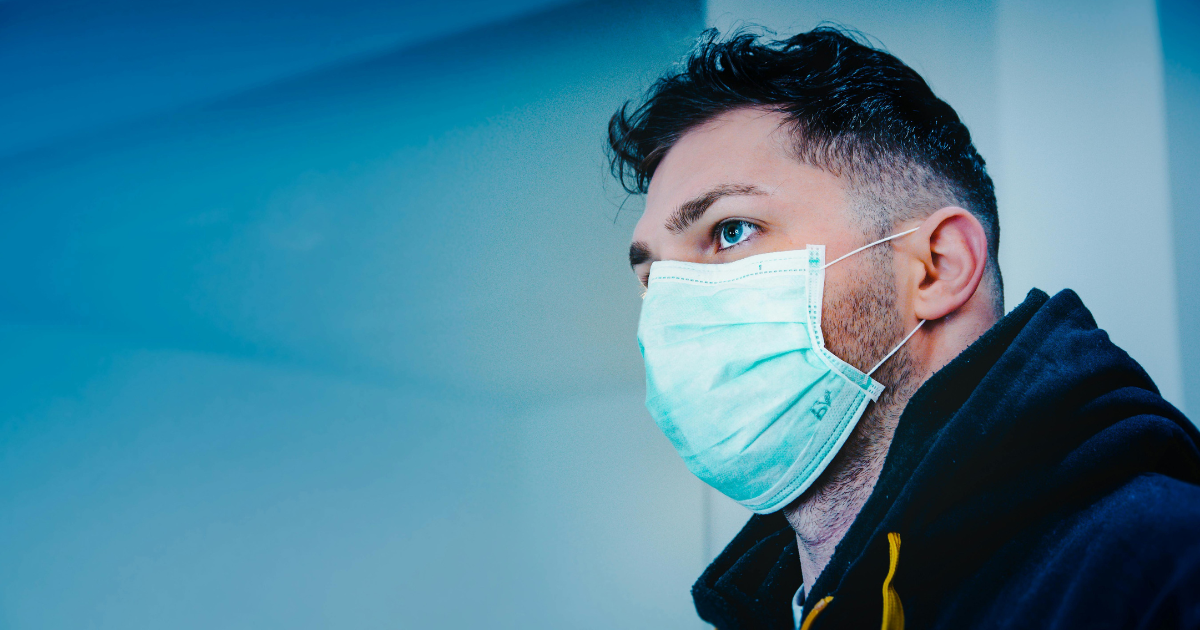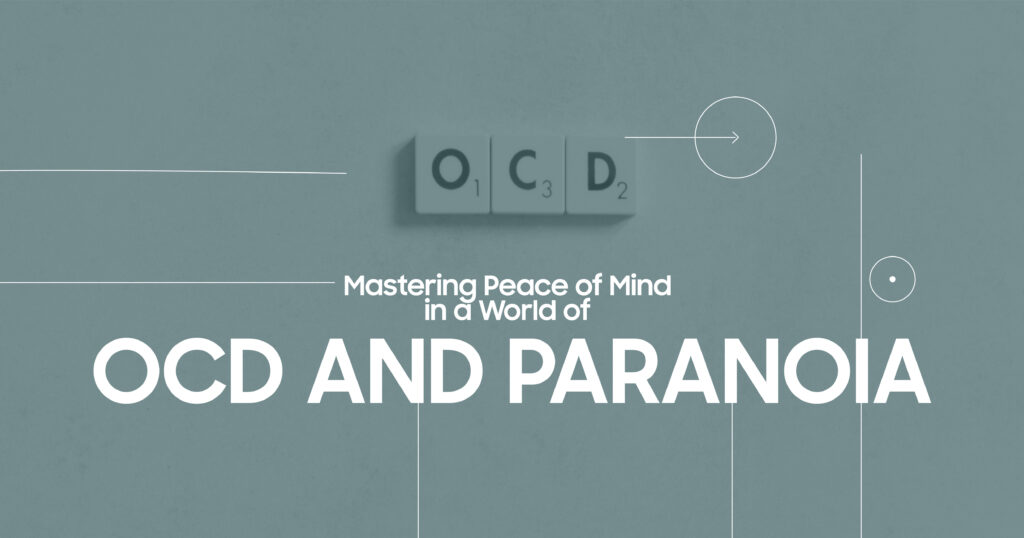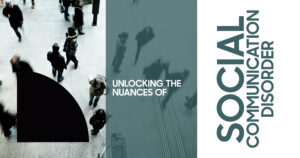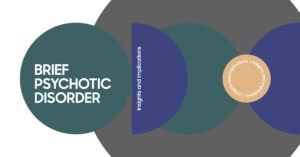It is hard enough to live with one mental illness – the psychological challenges of experiencing yet another symptom on top of your disorder are difficult to understand unless you are the person who has to deal with these problems on a daily basis. Unfortunately, many people are diagnosed with obsessive-compulsive disorder (OCD) and they also exhibit the symptoms of paranoia such as extreme fear and suspicion. But how exactly are these two related? And what can be done to lessen the impact of paranoia and OCD on your life?
In this article, we will discover the main characteristics of OCD and paranoia and learn more about the management and potential treatment you can access today.
Understanding OCD and Paranoia
OCD and paranoia often overlap and even are mistaken for one another but there are clear differences between these two conditions. A person with OCD will realize how pointless and useless their compulsions and obsessions are while an individual with paranoia will not be able to see that. Paranoia can also be triggered by an interaction with other people – OCD, however, will manifest on its own since it is not about other individuals, it is about the behavior that takes place in private and in public.
What Are Obsessive Thoughts and Intrusive Thoughts?
Obsessive thoughts refer to mental images and urges that make the person feel extremely anxious. They usually allow a mental health specialist to diagnose a patient since this is a symptom that indicates the presence of OCD. Intrusive thoughts, on the other hand, may manifest if a person is depressed or schizophrenic – they can frighten the individual and cause them to experience great distress but compared to obsessions, they are relatively harmless.
How Compulsive Behaviors Manifest
A person focuses on compulsions they need to repeat and do it consistently regardless of these actions being troubling and useless. These compulsive behaviors are related to the individual’s worries – they need to wash their hands a certain number of times, check if they closed the door or turned electrical appliances off, hoard objects that have no actual value, count items to calm down, and order things to make sure they are arranged and symmetrical in accordance with their internal and irresistible urges.

The Emotional Toll of OCD and Paranoia
Paranoia and OCD make it hard for a person to concentrate on their daily responsibilities and activities – you will be late to an event because you had to stop and check all the electrical equipment in your house or you will avoid trusting a person because you believe they mean to harm you.
Due to your mental health struggles, your physical health fades into the background – when you need to have a physical exam or there is some physical discomfort you should take care of, you will neglect it in favor of your compulsions, obsessions, and paranoid thoughts. Your social life will suffer as well – even people who are happy to stay in touch with you will feel emotionally exhausted when they are required to accommodate your behavior all the time, spend time on actions they deem futile, and deal with the accusations that have no merit.
Fear of Contamination and Other Common Triggers
A person’s obsession with cleanliness and their compulsions that force them to wash their hands, take a bath, and avoid shaking hands with others is a very common manifestation of OCD but there are many factors that can cause an OCD episode. Any stressful event – even an insignificant one – can lead to stress and an onset of symptoms.
Cumulative stress, lack of sleep, conflicts with other individuals, and disruptions in routine and schedule can also make the person spiral out of control and seek comfort in obsessions and compulsions that give them temporary relief.
Paranoia’s Role in Chronic Anxiety
Paranoia and anxiety are also closely linked – chronic stress and severe anxiety can cause paranoia and vice versa. Not every person with anxiety disorder is fixated on paranoid thoughts but it is possible that your anxiety results in you feeling scared of other people, potential persecution, or conspiracy whose goal is to damage your health or reputation.
Recognizing Signs and Symptoms
The manifestations of paranoia and OCD are different, and two people diagnosed with either of these conditions may discover their symptoms are not the same. Still, there are some common signs you should be on the lookout for if you believe you may have OCD or paranoia:
| OCD Symptoms | Paranoia Symptoms |
| Fear of Illness and Contamination | Inability to Trust Others |
| Desire for Order and Symmetry | Sensitivity to Criticism |
| Doubt and Uncertainty | Aggressiveness and Hostility |
| Involuntary Violent Thoughts | Hypervigilance |
| Checking and Counting Compulsions | Obsession With Conspiracy Theories |
| Fear of Losing Things, Forgetting Information, and Making Mistakes | Fear of Being in Unfamiliar Places |
Strategies for Managing OCD and Paranoia
Luckily, patients with paranoia and OCD have an opportunity to minimize the impact of these mental health issues on their lives. Here is how you can manage both conditions at the same time and get as close to sustainable and profound recovery as possible:
| Strategy | Description |
| Talking Therapy | With the help of regular counseling sessions – whether you opt for outpatient or inpatient treatment – you can navigate the ups and downs of life with self-efficacy and positive reinforcement. A therapist will introduce you to healthy coping mechanisms you can practice long after your treatment comes to an end |
| Cognitive Restructuring | A mental health professional can utilize cognitive behavioral therapy for relief of the most severe symptoms of OCD and paranoia simultaneously. It is not a secret that many issues stem from the negativity the patient harbors towards themselves which is why CBT is required to recognize these negative thoughts and alter them |
| Prescription Medication | In some instances, prescription drugs are the only way to reduce and eliminate the symptoms. A psychiatrist will evaluate your health and figure out whether you need to take antidepressants or antipsychotics to deal with thoughts and behaviors that do not let you lead a life you deserve |
| Mindfulness and Self-Care Practices | There are many grounding techniques to reduce anxiety you can master under the guidance of a mental health specialist and later use on your own. Mindfulness therapy can also serve as a complementary therapy for a patient who prefers to rely on more conventional therapy modalities |
Creating a Supportive Environment At Treat Mental Health
Whether you suspect you may have OCD or paranoia or you were diagnosed in the past yet the treatment has failed to improve your mental well-being, you should not hesitate to seek professional help. Contact Treat Mental Health now and allow us to help you create an action plan for positive change – you can benefit from recharging your batteries in a safe and nurturing therapeutic space, regain the focus you have been missing, and get rid of the symptoms that do not let you enjoy your life.

FAQs
What are the common types of intrusive thoughts?
Intrusive thoughts come in different shapes and forms – they can be related to various phobias, connected to violence and self-harm, or involve sexual thoughts. These involuntary thoughts can make you worry about your past and present mistakes, your relationships with people you care about, your physical health, and your religious beliefs.
How does CBT help with compulsions and fears?
Compulsive behavior is problematic which means it can be challenged with cognitive behavioral therapy. A qualified therapist will be able to convince you the rituals you focus your attention on are not productive or necessary to make sure you or others are safe and help you distract yourself with positive ideas and affirmations.
Why is obsessive behavior linked to chronic worry?
Intrusive thoughts, urges, and images that keep appearing in the head of a person with OCD inevitably cause anxiety and stress especially if the disorder was triggered or got worse because of trauma that was not properly addressed and processed. Besides, when you realize you cannot control the mental images, you feel distraught, helpless, and confused which only adds to anxiety.
What strategies help stop repetitive OCD actions?
Repetitive actions are very hard to resist but there are some tips for a person trying to fight them. At first, you can try to postpone them instead of acting right away and then you can mess them up somehow – for instance, change the order or repeat the action with a different speed. When you feel more in control of yourself, you can begin to distract yourself with other actions, stop engaging with your intrusive thoughts, and try the 5-4-3-2-1 grounding technique to cope with anxiety that might overwhelm you.
How can you tell OCD apart from general anxiety?
While there are some similarities between OCD and anxiety disorder, individuals diagnosed with the former condition are more likely to create rituals that help them calm down and their minds are focused on a particular obsession such as fear of contamination or symmetry. Anxiety cannot be reduced if you give in to a certain compulsion or obsession, and it is often caused or triggered by a particular reason unlike OCD.








